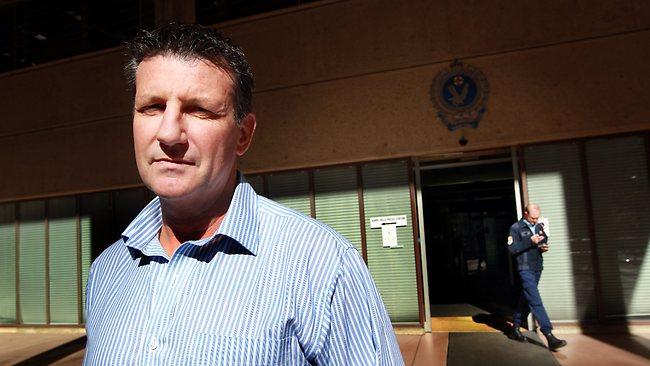Anti-graft big guns repeat offenders, claims ex-cop
ADAM PURCELL knows better than most about telephone hacking and gross breaches of privacy.

ADAM PURCELL knows better than most about telephone hacking and gross breaches of privacy.
The disclosure of his private conversations destroyed relationships. His career was ruined and he came close to a mental breakdown.
Mr Purcell's argument is not with the media. The intrusions into his privacy were instigated by a law enforcement agency, the NSW Police Integrity Commission, which released hours of his most private and embarrassing conversations that had been recorded with listening devices and telephone taps.
The PIC was investigating whether Mr Purcell perverted the course of justice by intervening in a sexual assault case involving a rugby league star.
Those claims were not substantiated. He admitted disobeying an order not to disseminate information about a child sex offender being a serial abuser, because he believed that the order was against the public interest. His was fined $2000.
Two months ago, Mr Purcell, who now works part-time at a pub, won a District Court civil case against NSW Police, which settled and agreed to him being discharged as "hurt on duty".
Consultant psychiatrist Peter Anderson gave evidence that Mr Purcell's depressive condition was directly linked to the invasion of his privacy.
His private conversations, which the PIC collated on CDs and handed to journalists and the public, were not of a criminal nature. Mr Purcell was speaking candidly about colleagues, friends and family, never expecting this banter to be made available to the world at large.
Most people named in his conversations were shocked when they heard them on the radio and television or after downloading the audio files from the internet. The former NSW police detective and superintendent was left ostracised, jobless and trying to explain to his nine-year-old daughter why he had suddenly become a reviled and notorious public figure.
He urges Julia Gillard and Greens leader Bob Brown to ensure that any federal inquiry into privacy examines the misuse of irrelevant information gleaned from telephone taps and listening devices in a spate of cases in which anti-corruption agencies have been repeat offenders.
"This is the sort of privacy breach that should be investigated by a privacy inquiry because, if it is not looked at, who can hold these powerful bodies to account?" Mr Purcell said yesterday. "Their conduct in breaching privacy far outstrips what I have read and heard that the News of the World and its journalists have done.
"The PIC played and released conversations where I had criticised or lampooned my peers in private. They did it to alienate me.
"It was devastating and I was not allowed to try to explain the context. I don't blame the reporters because they simply broadcast conversations provided by the PIC. The PIC had total disregard for privacy."
The Telecommunications (Interception and Access) Act has strict provisions to prevent the misuse of private information picked up in tapped conversations. The High Court has made numerous warnings about the need for stringent privacy protection during telephone tapping.
But the breaches by law enforcement agencies have not been publicly criticised by Attorney-General Robert McClelland or prosecuted by the federal Director of Public Prosecutions.
From his experience as a senior detective who followed strict laws covering the use of product from taps and listening devices, Mr Purcell remains convinced that the PIC's actions were illegal and punishable by a term of imprisonment. Peter Moss QC, the head of the PIC's official oversight body, came to a similar view and strongly criticised the PIC's conduct before referring it to the federal DPP, Christopher Craigie SC, who decided earlier this year not to prosecute.
Mr Purcell's intercepted conversations, many of which occurred when he was off duty and intoxicated, were disparaging of his bosses and laced with offensive descriptions and profanities. He had said an assistant commissioner had "an ego the size of Texas" and that "pound for pound, the NSW Police draws more dickheads than any other profession".
He had spoken in private of the incompetence, unattractiveness and weaknesses of numerous people. When it came out in an orchestrated free-for-all in public hearings by the PIC in 2007, Mr Purcell was finished. His lawyer, John Harris, said yesterday: "It was a very serious breach of privacy. The irony is that it was a breach by a law enforcement agency and the material had nothing to do with the terms of reference or corruption. He could not go back to work because in a private conversation he had called everyone a dickhead."
Mr Purcell said: "My private conversations from intercepts were broadcast and put up on websites. My daughter was downloading conversations in which I was using disgusting words that I would never have said in her presence. . . . It was a shocking breach of privacy and the PIC did it to embarrass and ostracise me for salacious headlines.
"I knew from serious crime investigations how careful you have to be with the product from telephone intercepts and I knew that what the PIC was doing was illegal, but I felt powerless."



